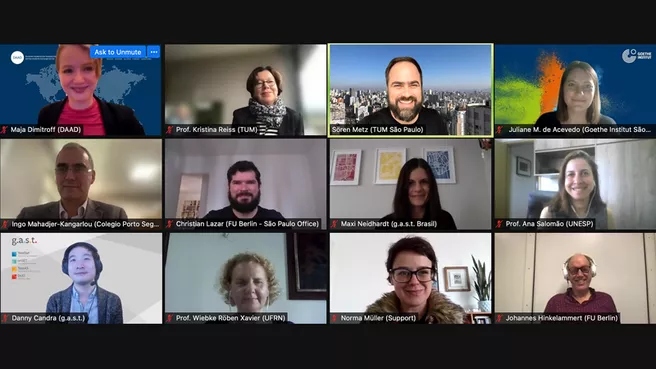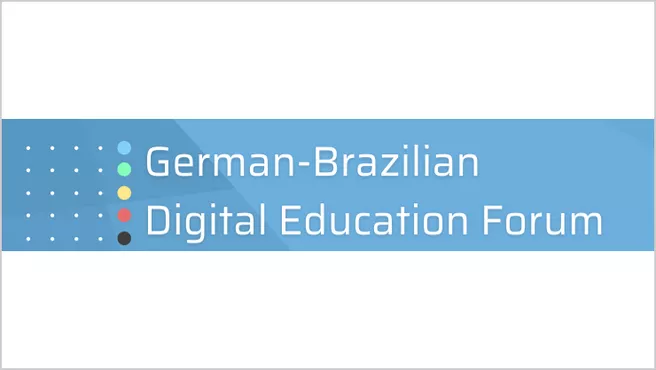Around 170 participants attended the German-Brazilian Digital Education Forum on November 10, where they listened to a wide range of presentations on digital education and digital teaching. The primary goals of the three-hour online event were the intercultural exchange of experiences and networking. In addition to the TUM liaison office, the organizers included the Gesellschaft für akademische Studienvorbereitung und Testentwicklung e. V. and Freie Universität Berlin.
What happens at schools and universities?
The first part of the event gave insights into the current state of digitization at various universities. Here, among others, the TUM partner university Universidade Estadual Paulista (UNESP) and the DAAD introduced their concepts and platforms for digital teaching.
Prof. Ana Sãlomao presented the Brazilian Virtual Exchange Program (BraVE) of the UNESP. The presentation focused on conceptual and didactic advice to UNESP's own researchers who are implementing the BraVE projects in São Paulo. UNESP cooperated with TUM in 2021 in an online course on the UN Sustainability Council at the TUM Campus Straubing.
The second part of the event addressed digital teaching activities in schools. Prof. Kristina Reiss, who served as Dean of the TUM School of Education until March 2021 and led the PISA study in Germany, spoke about digitalization in STEM subjects and highlighted some related challenges and possible solutions.
Ingo Mahadjer-Kangarlou, director of Colégio Visconde de Porto Seguro, a German school in Valinhos, reported on the successful implementation of online and hybrid teaching at his institution. In addition, the PASCH initiative of the Goethe-Institut and the Rechenpate project of the FU Berlin were presented, which, in cooperation with the Zentralstelle für Auslandsschulwesen (Central Agency for German Schools Abroad), is involved with online support in mathematics at German schools among other places also in Brazil.
Interaction with the audience and outlook
The concluding round of discussions with the audience highlighted the enormous relevance of this topic as well as the great need for exchange opportunities and resources for the development of digital competencies among teachers and learners alike.
Virtual formats will play an increasingly important role in future curricula and will influence both research and teaching in schools and universities here – also beyond a pandemic. The organizers involved are therefore already planning a continuation of the forum for 2022. At this point, TUM São Paulo would like to thank the German House of Science and Innovation (DWIH) São Paulo for supporting the German-Brazilian Digital Education Forum 2021. We look forward to more successful events in the coming year!
Links
Heinz Nixdorf Chair of Mathematics Education
OECD Programme for International Student Assessment (PISA) at TUM
PASCH Network Goethe São Paulo (only available in German and Portuguese)

